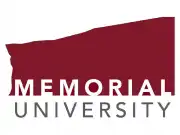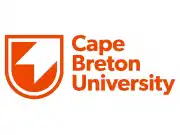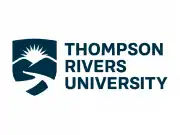Master's programs in Canada for international students
- Advantages of Master's Programs in Canada
- Formats and Levels of Master's Programs in Canada
- Top Universities for Master's Programs in Canada
- How to Apply for Master's Programs in Canada
- Documents for Master's Program Admission in Canada
- Language of Instruction and Preparation for Master's in Canada
- Cost of Master's Programs in Canada
- Scholarships and Grants for Master's Programs in Canada
- Career Prospects After Master's in Canada
- Frequently Asked Questions

Master of Science - Psychology
Memorial University of NewfoundlandThe Department of Psychology has approximately 30 faculty members and 60 graduate students. Faculty have active research programs in many areas of psychology, many of which rely on volunteers from the community.
Psychology is also part of the interdisciplinary Cognitive and Behavioural Ecology…

Master of Science - Public Health
Memorial University of NewfoundlandThe Master of Public Health is an advanced programme of study for students from a variety of areas who want a professional degree that will equip them for work in a number of public health practise settings. The program's purpose is to train graduates who are skilled in public health practise to promote…

Master of Arts - Religious Studies
Memorial University of NewfoundlandFrom international politics to the latest blockbuster film, very little happens in the world today that does not involve religion in some manner. If you are interested in the historical and contemporary role of religion, Memorial University is the place to be. Memorial University has the largest graduate…

Master of Engineering - Safety and Risk Engineering
Memorial University of NewfoundlandConcerns about safety and risk are crucial in a wide range of sophisticated engineering activities such as offshore operations, petroleum refining, and mineral processing. Today, a wide range of approaches are available to analyse safety, risk, and reliability, both in terms of design and day-to-day…

Master of Science - Scientific Computing
Memorial University of NewfoundlandMemorial University's MSc in Scientific Computing programme was one of the earliest in North America and is still the only one in Atlantic Canada. Scientific Computing currently offers both MSc and PhD programmes. These programmes teach students advanced computational tools and how to apply them to…

Master of Social Work
Memorial University of NewfoundlandSince its foundation in 1963, Memorial University's School of Social Work has evolved to become the largest east of Montreal, and its MSW and PhD programmes are taught by an internationally acclaimed faculty. Memorial University's PhD in Social Work programme is the only one in Atlantic Canada. The…

Master of Sociology
Memorial University of NewfoundlandSociology seeks to comprehend patterns of human social life in all of their historical and contemporary diversity: how individuals live, think, feel, believe, and behave, in comparison to other societies. The Department of Sociology at Memorial University is the largest in Atlantic Canada, with specialties…

Master of Education - Sustainability, Creativity and Innovation
Cape Breton UniversityThe culture of Cape Breton University is defined by sustainability, innovation, and community participation. The Master of Education in Sustainability, Creativity, and Innovation (MEd SCI) programme is designed for progressive thinkers and problem solvers. It provides courses that enable learners…

Master of Arts - Human Rights and Social Justice
Thompson River UniversityWhat are the benefits of pursuing a Master of Arts in Human Rights and Social Justice at TRU?
Work on human rights and social justice problems with non-profit groups, all levels of government, the business sector, university research faculty, health authorities, and the larger community.

Master of Education
Thompson River UniversityA winning mix of core courses and electives: There are five required courses that lay the groundwork for your future studies and employment. You choose electives that fascinate you and build on this foundation. Lastly, you select your exit strategy: capstone, project, or thesis.
- You…
Advantages of Master's Programs in Canada
Canada holds leading positions among countries offering quality higher education for international students. Master's programs in Canadian universities combine high academic standards, innovative teaching approaches, and international recognition of diplomas.
Key advantages:
- Internationally recognized diploma accepted worldwide.
- Stable and safe country with high standard of living.
- Modern research centers and laboratories.
- Opportunity to combine studies and practical experience.
- Wide choice of specialties and languages of instruction.
- Right to work during studies and after program completion.
- Immigration opportunities through education.
Formats and Levels of Master's Programs in Canada
Master's programs in Canada vary in structure and academic focus. Main formats:
- Course-based Master's (applied programs) — focused on professional training, include lectures, seminars, projects.
- Research-based Master's (research programs) — involve conducting scientific work and writing a thesis.
- Professional Master's (practice-oriented programs) — designed to acquire specific skills for work in particular industries.
Standard duration of study:
- 1-2 years for most programs.
- Some technical and medical programs may last longer.
Top Universities for Master's Programs in Canada
| University Name | Program | Cost for International Students per Year | World Ranking (QS) |
|---|---|---|---|
| University of Toronto | Master of Engineering, MBA | from 35,000 CAD | 21 |
| University of British Columbia | Master of Computer Science | from 30,000 CAD | 34 |
| McGill University | Master of Public Health, MBA | from 29,500 CAD | 30 |
| University of Alberta | Master of Science, MBA | from 20,000 CAD | 111 |
| University of Montreal | Master of Law, Master of Finance | from 19,000 CAD | 141 |
| Western University | Master of Data Analytics | from 27,000 CAD | 114 |
| University of Waterloo | Master of Mathematics, Engineering | from 28,000 CAD | 112 |
*Cost may vary depending on program and faculty.
How to Apply for Master's Programs in Canada
Application stages:
- Choosing a university and program.
- Checking applicant requirements.
- Gathering necessary documents.
- Taking international exams (if required).
- Submitting online application through university website.
- Paying application fee.
- Receiving university decision.
- Obtaining visa and preparing for relocation.
The application process begins 8-12 months before studies start.
Potential application difficulties:
- High competition for popular programs, especially at top universities.
- Need to confirm language proficiency (IELTS, TOEFL, DELF, DALF) at required level.
- Some programs require GMAT or GRE, which requires serious preparation.
- Requirements for academic CV, motivation letter and recommendations can be very strict.
- Need to provide samples of academic works or projects (if required by program).
Study Permit (Visa) difficulties:
- Need to prove sufficient financial resources to cover tuition and living expenses.
- Medical examination.
- Visa process may take 8 to 16 weeks, sometimes longer.
- Visa refusal possible with insufficient evidence or documentation errors.
Therefore it's important to prepare documents in advance and consider all requirements of both universities and Canadian immigration authorities.
Documents for Master's Program Admission in Canada
Standard list of documents for Master's admission in Canada includes:
- Bachelor's diploma and transcript with grades.
- Academic CV.
- Motivation letter.
- Recommendation letters (usually 2).
- Language exam certificates (IELTS/TOEFL, DELF/DALF).
- GMAT or GRE results (if required by program).
- Portfolio (for creative specialties).
- Samples of academic or professional works (if required).
Language of Instruction and Preparation for Master's in Canada
Master's studies in Canada are conducted in:
- English (main language at most universities).
- French - at Quebec universities and some bilingual institutions.
For students with insufficient language level, preparatory programs are available:
- Pre-Master's — academic English/French courses and introduction to university environment.
- Preparatory programs in core subjects.
Such courses help with adaptation and successful start of main Master's program.
Cost of Master's Programs in Canada
Cost range:
- Tuition: from 18,000 to 45,000 CAD per year.
- Housing: 800-1,500 CAD per month.
- Food: 300-600 CAD per month.
- Transportation: 100-150 CAD per month.
- Medical insurance: 600-900 CAD per year.
Final expenses depend on province and student's lifestyle.
Scholarships and Grants for Master's Programs in Canada
Scholarship examples:
- Vanier Canada Graduate Scholarships — up to 50,000 CAD per year, for outstanding students.
- Ontario Graduate Scholarship — from 5,000 to 15,000 CAD.
- Université de Montréal Exemption Scholarship — partial tuition waiver.
- McGill Entrance Scholarships — financial support upon admission.
- UBC International Graduate Scholarships — merit-based scholarships.
Award criteria:
- High academic performance.
- Relevance to research topics.
- Language level.
- Timely application.
Deadlines — mainly from September to January.
Career Prospects After Master's in Canada
After completing Master's program, international graduates can obtain Post-Graduation Work Permit (PGWP) — work permit in Canada for up to 3 years. PGWP allows official employment at any Canadian company, gaining professional experience and increasing chances for subsequent immigration through federal or provincial programs.
Master's in Canada opens doors to well-paid jobs and promising careers. In-demand fields:
- Information technology.
- Engineering.
- Finance and business administration.
- Healthcare and biotechnology.
- Law and international relations.
- Ecology and climatology.
Major employers:
- Google Canada, IBM, Microsoft.
- Bombardier, SNC-Lavalin.
- Canadian banking sector (RBC, TD Bank).
- Pharmaceutical and biotech companies.
- Consulting agencies.
Many graduates remain in Canada thanks to post-study work permit and immigration opportunities.
Frequently Asked Questions
1. Can international students work while studying Master's in Canada?
Yes, allowed to work up to 20 hours per week during semester and full-time during holidays.
2. Is IELTS or TOEFL mandatory for Master's admission in Canada?
Yes, if instruction is in English and you're not from English-speaking country.
3. How long does Master's in Canada last?
Programs last from 1 to 2 years.
4. Is there opportunity for full funding of Master's studies in Canada?
Yes, especially for research programs and through scholarship competitions.
5. Which Master's programs are most popular in Canada?
IT, engineering, business, finance, biotechnology and ecology.
6. What are portfolio requirements for creative specialties in Master's in Canada?
Work samples, projects, publications demonstrating creative and professional skills.
7. Can one stay in Canada after completing Master's in Canada?
Yes, possible to obtain work permit and apply for immigration programs.
8. What is PAL and is it needed?
PAL (Provincial Attestation Letter) — confirmation from Canadian provincial authorities, required for some international students when applying for Study Permit.